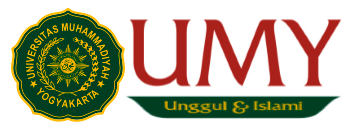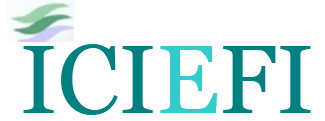Waqif Preference of Waqf-Based Qardhul Hassan Financing in Malaysia: An Analytic Hierarchy Process Perspective
Abstract
Keywords
Full Text:
PDFReferences
Al-Quran. (1997). English translation of the meaning of al-Quran, translated from Arabic by Muhammad Farooq-i-Azam Malik. Texas, U.S.A: The Institute of Islamic Knowledge.
Abduh, M., & Asfan, F. (2020). Factors that influence retail equity investors to patronize Islamic stockbroking in Malaysia: an AHP approach. In Economics, Business, and Islamic Finance in ASEAN Economics Community (pp. 278-291). IGI Global.
Abidin, A. Z., Alwi, N. M., & Ariffin, N. M. (2011). A case study on the implementation of qardhul hasan concept as a financing product in Islamic banks in Malaysia. International Journal of Economics, Management and Accounting, 19(3), 81-100
Amin, H. (2022). Waqf-based qardhul hassan finance: a preliminary study of QAFSCALE measuring waqf-based qardhul hassan financing receptiveness. e-Jurnal Penyelidikan dan Inovasi, 9(2), 1-23.
Amin, H., & Ramayah, T. (2010). SMS banking: explaining the effects of attitude, social norms and perceived security and privacy. The Electronic Journal of Information Systems in Developing Countries, 41, 1-15.
Amin, H., Ghazali, M., & Supinah, R. (2010). Determinants of qardhul hassan financing preference among Malaysian bank customers: An empirical analysis. International Journal of Business and Society, 11(1), 1-16.
Ashur, M. A. I. (2006). Ibn Ashur: Treatise on Maqasid Al-Shariah. London: The International Institute of Islamic Thought.
Attia, G. E. (2010). Towards the Realisation of the Higher Intents of Islamic Law (N. Roberts, Trans.). Kuala Lumpur, Malaysia: Islamic Book Trust.
Auda, J. (2010). Maqasid Al-Shariah as a Philosophy of Islamic Law: A System Approach. London: The International Institute of Islamic Thought.
Bank Negara Malaysia. (2018). Value-based intermediation: Strengthening the roles and impact of Islamic finance. Accessed at http://www.bnm.gov.my/index.php?ch=57&pg=137&ac=612&bb=file (6th July 2019).
Bank Negara Malaysia Website. (2021). The Shariah Advisory Council of Bank Negara Malaysia (SAC). http://www.bnm.gov.my/index.php?ch=en_about&pg=en_thebank&ac=802, accessed on 6th July 2019)
Bernama. (2020). Malaysia unemployment rate up at 4.7 percent in October 2020. Available at: https://www.theedgemarkets.com/article/dosm-malaysia-unemployment-rate-47-october on the 30th January 2021.
Çakır, A., & Abusarhan, A. (2019). The Waqf of Qard Al-Hasan, risks it may encounter and their solutions) a theoretical study in Fiqh). An-Najah University Journal for Research-B (Humanities), 35(12), 1951-1986.
Chapra, M.U. (2000). The Future of Economics: An Islamic Perspective. United Kingdom: The Islamic Foundation.
Choudhury, M.A. (2019a). Meta-Science of Tawhid: A Theory of Oneness. Switzerland: Palgrave Macmillan.
Choudhury, M.A. (2019b). The Tawhidi Methodological Worldview: A Transdisciplinary Study of Islamic Economics. Singapore: Springer.
DOSM. (2021). Malaysia unemployment rate up at 4.8 percent in November 2020. Available at: https://www.dosm.gov.my/v1/ on the 30th January 2021.
Dusuki, A.W. (2008). Understanding the objectives of Islamic banking: A survey of stakeholders’ perspectives. International Journal of Islamic and Middle Eastern Finance and Management, 1(2), 132-148.
Freedman, D., Pissani, R., & Purves, R. (2002). Statistics (4th ed.). USA: W.W. Norton & Company Inc.
Ismail, A. G., & Possumah, B. T. (2010). Qardhul hasan principles applied to micro finance facilities. The 2nd International Workshop in Islamic Economics Theory: Islamic Micro-finance Towards Global Poverty Alleviation and Sustainable Development, 8-9 December 2010, Bangi, Malaysia.
Kallas, Z. (2011). Butchers’ preferences for rabbit meat; AHP Pairwise comparisons versus a LIKERT scale valuation. In Proceedings of the International Symposium on the Analytic Hierarchy Process for Multicriteria Decision Making (pp. 1-6).
Khan, M.F., & Ghifari, N.M. (1992). Shatibi’s objectives of Shariah and some implications for consumer theory. In Sadeq, A.M., & Ghazali, A. (eds.), Readings in Islamic Economic Thought. (pp. 176-202). KL: Longman Malaysia.
Machfudz, M., & Kamila, N. (2019). Empowerment of small businesses through the implementation of qardhul hasan financing. Journal of Socioeconomics and Development, 2(2), 99-106.
Mohammed, M.O., Abdul-Razak, D., & Md-Taib, F. (2008). The performance measures of Islamic banking on the maqasid framework. Paper presented at IIUM International Accounting Conference (INTAC IV), organized by International Islamic University Malaysia, Putra Jaya.
Muneer, F., & Khan, F. (2019). Qard-al-hassan as a tool for poverty alleviation a case of Fael Khair Waqf Program in Bangladesh. Journal of Islamic Monetary Economics and Finance, 5(4), 829-848.
Muneer, F., & Khan, F. (2022). Impact of Qard-al-Hasan (interest-free loan) program in reducing multidimensional poverty: evidence from the southwest Bangladesh. International Journal of Islamic and Middle Eastern Finance and Management, 15(6), 1072-1087.
Musari, K. (2016). Economic Sustainability for Islamic Nanofinance through Waqf-Sukuk Linkage Program (Case Study in Indonesia). Uluslararası İslam Ekonomisi ve Finansı Araştırmaları Dergisi, 2(3), 73-94.
Obidullah, M., & Shirazi, N.S. (2015). Islamic Social Finance Report 2015. Jeddah: Islamic Research and Training Institute (IRTI).
Perera, N., & Sutrisna, M. (2010). The use of analytic hierarchy process (AHP) in the analysis of delay claims in construction projects in the UAE. The Built & Human Environment Review, 3(1), 29–47.
Razak, D. A. (2011). Diminishing partnership as an alternative Islamic home financing in Malaysia: issues and perceptions, Unpublished PhD Thesis, School of Management, University Sains Malaysia, Penang, Malaysia.
Saaty, T. L. 1990. An exposition of the AHP in reply to the paper “Remarks on the analytic hierarchy process.” Management Science. 36(3) 259–268.
Shahwan, S., Mohammad, M. O., & Rahman, Z. A. (2013). Home financing pricing issues in the bay’bithaman ajil (BBA) and musharakah mutanaqisah (MMP). Global Journal Al-Thaqafah, 3(2), 23-36.
Zaharah, M. A. (1997). Usul al-Fiqh. Cairo: Dar al-Fikr al-‘Arabi.
Zauro, N. A., Saad, R.A., & Sawandi, N. (2016). The moderating effects of financial inclusion on qardhul hassan financing preference in Nigeria: A proposed framework. 6(S7), 143-148.
DOI: https://doi.org/10.18196/ijief.v6i2.17701
Refbacks
- There are currently no refbacks.
Copyright (c) 2023 International Journal of Islamic Economics and Finance (IJIEF)

This work is licensed under a Creative Commons Attribution-ShareAlike 4.0 International License.
International Journal of Islamic Economics and Finance (IJIEF)
International Program for Islamic Economics and Finance
Department of Economics
Faculty of Economics and Business
Universitas Muhammadiyah Yogyakarta
Pascasarjana Building, Ground Floor
Jl. Brawijaya (Ringroad Selatan), Kasihan, Bantul
D.I. Yogyakarta 55183, INDONESIA
Official email: ijief@umy.ac.id












1.jpg)